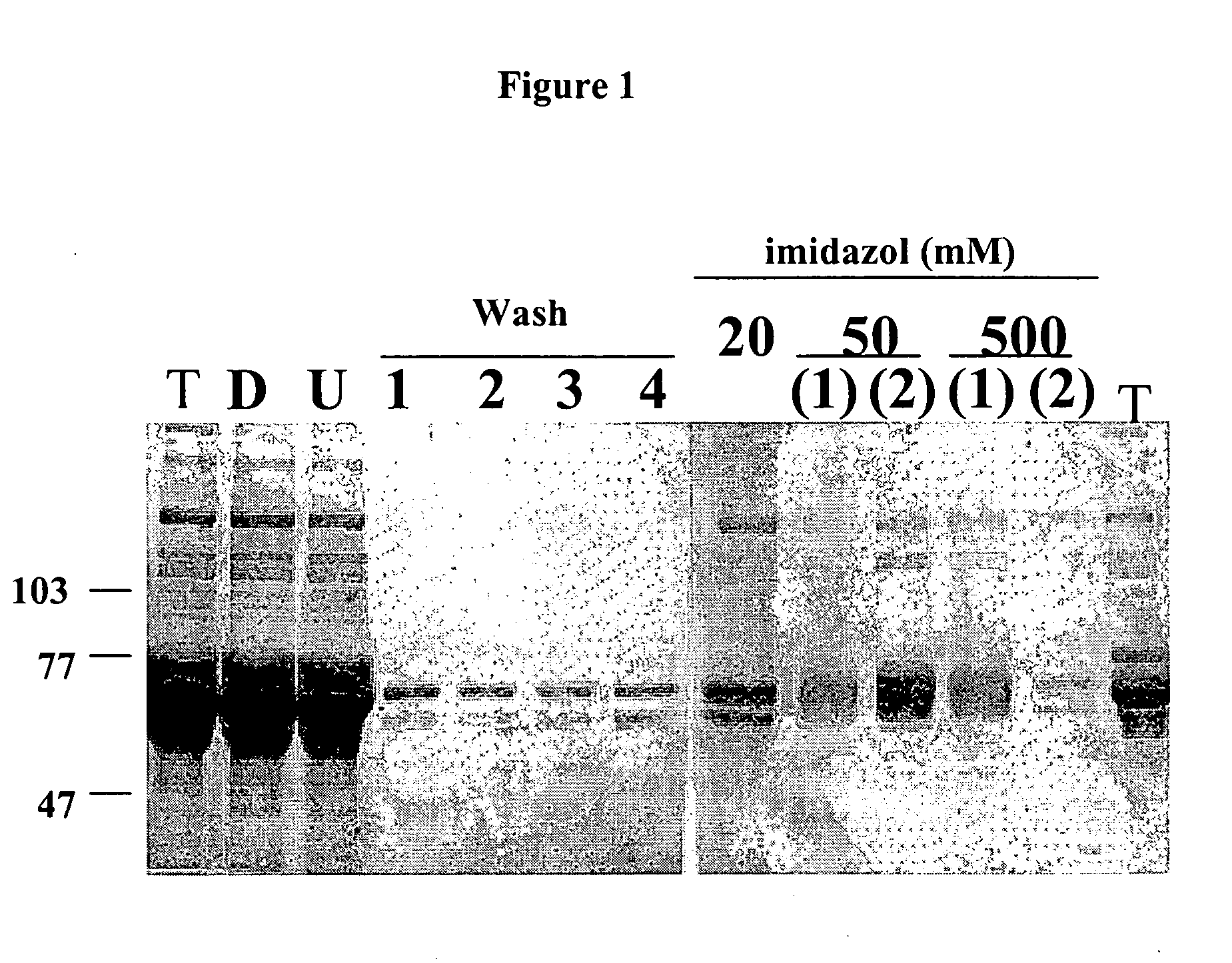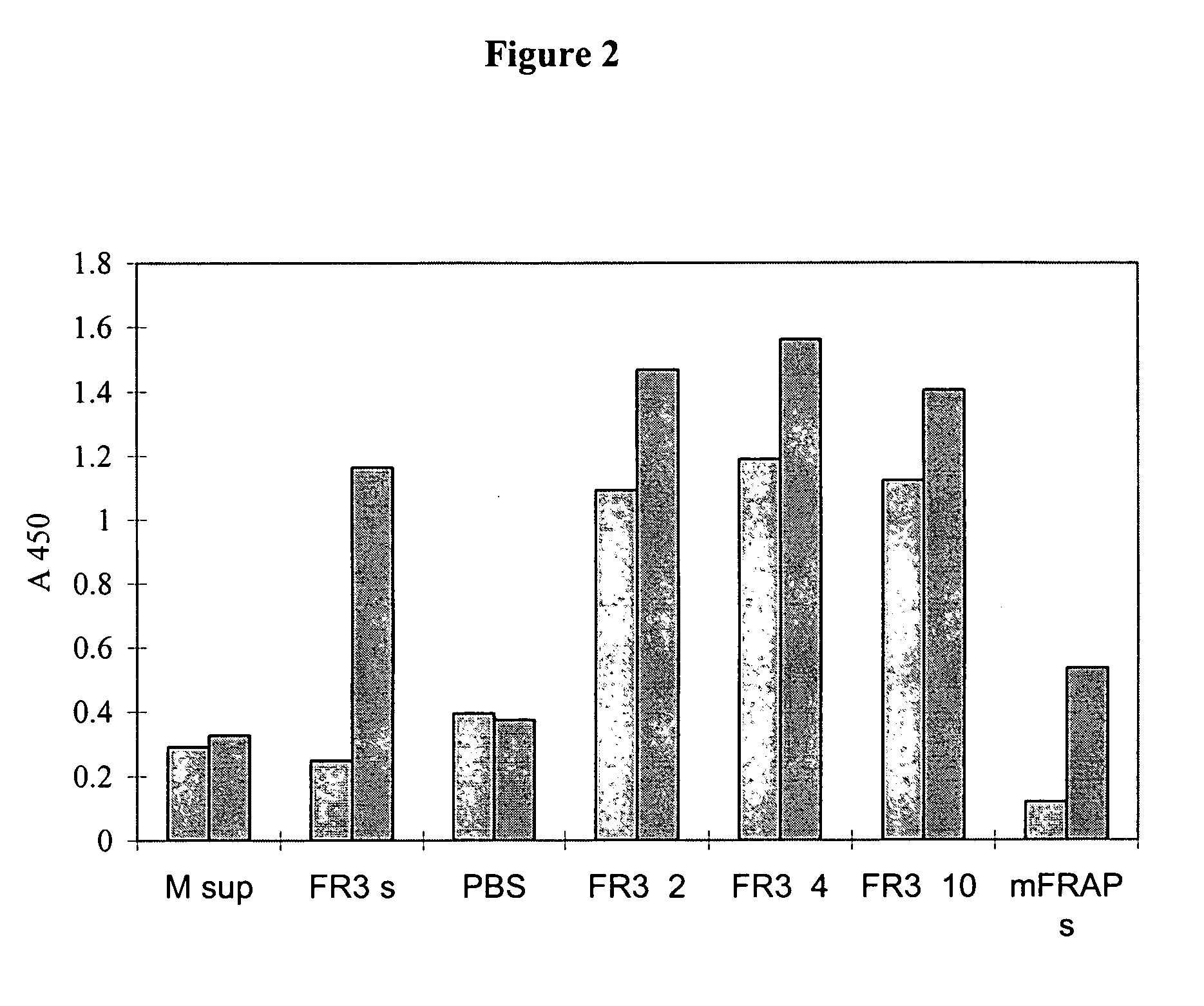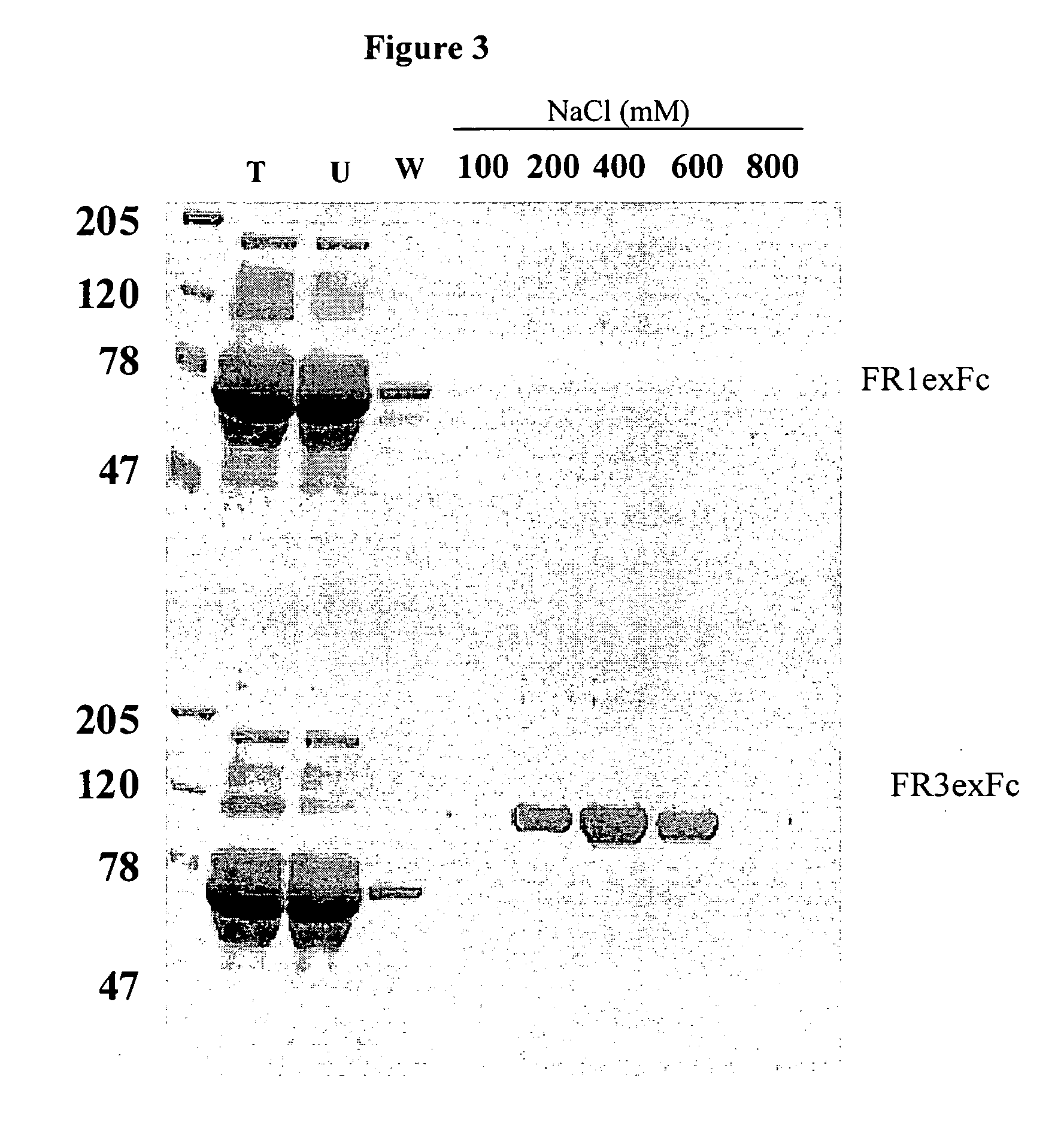Antibodies that block receptor protein tyrosine kinase activation, methods of screening for and uses thereof
a technology of tyrosine kinase and receptor protein, applied in the field of immunoglobulins, can solve the problems of specific and delicate control, rendering cells and tissues inability to differentia
- Summary
- Abstract
- Description
- Claims
- Application Information
AI Technical Summary
Benefits of technology
Problems solved by technology
Method used
Image
Examples
example 1
Attempt to Generate Anti-FGFR3 Antibodies
[0199] One hundred micrograms of soluble FGFR3 in complete Freund's Adjuvant were injected into Balb / c 3T3 naive mice (9 animals). Two repeated injections of 20 micrograms were performed at week intervals. 10 days after the second booster injection, blood was drawn from animals and serum was tested for the presence of polyclonal antibodies both by monitoring for binding to the receptor as well as for neutralizing activity at a dilution of 1:50. No significant neutralizing activity was observed in the tested serum (20% at most in some animals). A perfusion injection of 20 micrograms of soluble receptor was administered 1-2 days later but all the mice harboring some activity of neutralizing Ab died. The experiment was repeated twice with the same results.
example 2
Generation of the FGFR3 Antigens
[0200] Two dimeric forms of the extracellular domain of the human FGFR3 were prepared for use as antigen. One was a histidine-tagged domain with a Serine 371 to Cysteine (S371C) substitution (thanatophoric dysplasia (TD) mutation) to facilitate dimerization and the second one an Fc fusion. The S371C variant was shown to bind heparin and FGF9 coated plates and to inhibit FGF9-dependent FDCP-FR3 proliferation. The Fc fusion was similarly effective in binding assays, demonstrating its potential as an inhibitor of FGFR function and as a target for selecting FGFR3 inhibitory molecules. Both soluble receptors were employed to select neutralizing human recombinant antibodies.
[0201] The two variants of the FGFR3 extracellular domain were prepared as follows:
[0202] 1. A construct containing the extracellular portion of FGFR3 with a thanatophoric dysplasia (TD) mutation to facilitate dimer formation conjugated to a His-tag (histidine tag) was generated. A b...
example 3
Screening for Antibodies
[0214] Panning and first screening of Ab Binding Characterization
[0215] The screening strategies to identify Fabs from the Human Combinatorial Antibody Library (HuCAL®, developed at MorphoSys, Munich, Germany and disclosed in WO 97 / 08320, U.S. Pat. No. 6,300,064, and Knappik et al., (2000), the entire contents of which are incorporated herein by reference, using soluble dimeric forms of the extracellular domain of the FGFR3 receptor are shown in Table 2.
TABLE 2Panning StrategiesPanningPanningPanningRound 1Round 2Round 3Screen 1FR3-TDhisHEK293FR3-TDhisScreen 2FR3exFcRCJ-FR3achFR3exFccaptured withcaptured withmouse anti-mouse anti-human IgGhuman IgGScreen 3FR3-TDhisRCJ-FR3ach &FR3exFc(Round 1 ofRCJ-FR3wtCaptured withpanning 1)mouse anti-human IgG
[0216] The screening was carried out, for example in Screen 1, by coating the wells of a 96 well plate with hFR323-374TDhis (FR3-TDhis), panning with the bacteriophage library and selecting the positive clones. The...
PUM
| Property | Measurement | Unit |
|---|---|---|
| Molar density | aaaaa | aaaaa |
| Molar density | aaaaa | aaaaa |
| Molar density | aaaaa | aaaaa |
Abstract
Description
Claims
Application Information
 Login to View More
Login to View More - R&D
- Intellectual Property
- Life Sciences
- Materials
- Tech Scout
- Unparalleled Data Quality
- Higher Quality Content
- 60% Fewer Hallucinations
Browse by: Latest US Patents, China's latest patents, Technical Efficacy Thesaurus, Application Domain, Technology Topic, Popular Technical Reports.
© 2025 PatSnap. All rights reserved.Legal|Privacy policy|Modern Slavery Act Transparency Statement|Sitemap|About US| Contact US: help@patsnap.com



